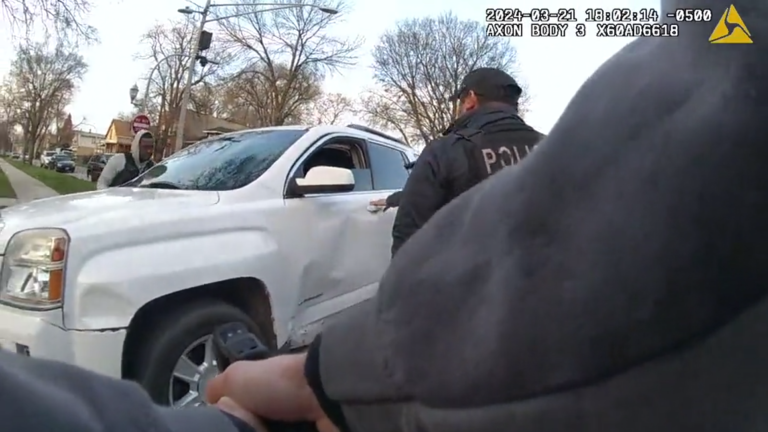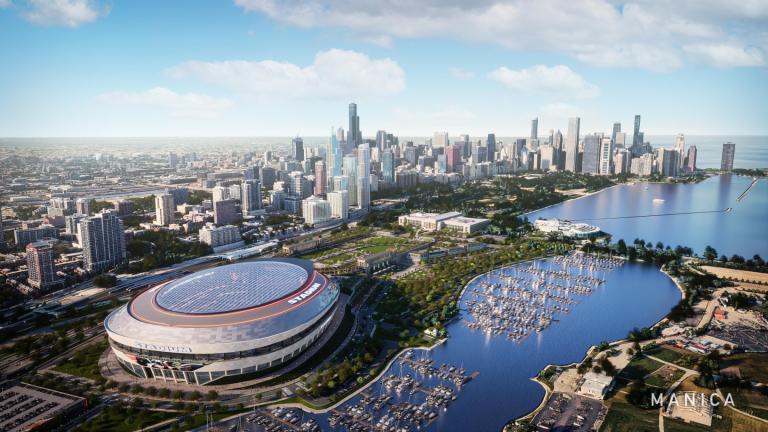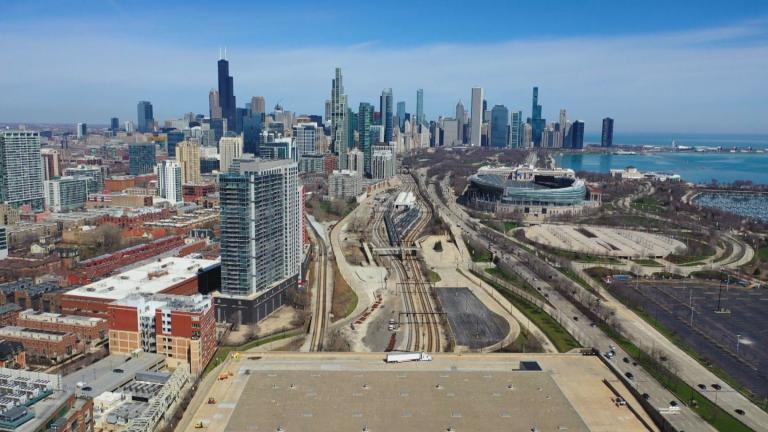Chicago voters should not get to decide during the March 19 primary whether to give the Chicago City Council the power to hike taxes on the sales of properties worth $1 million or more to fight homelessness, a Cook County judge ordered Friday.
The decision by Cook County Judge Kathleen Burke represented an initial victory for the real estate and development groups that sued the Chicago Board of Election Commissioners to knock the proposal known as Bring Chicago Home off the ballot, arguing that it improperly asked voters to decide three issues, when state law limits ballot measures to only one question.
The question will remain on the ballot, but the results will not be tallied and reported unless Burke’s decision is overturned by a state appeals court.
Burke's order invalidating the ballot question does not detail her reasoning. Read it here.
Lawyers for the city asked Burke late Friday to put a hold on her ruling, and filed an appeal Monday morning.
The author of the measure, Ald. Maria Hadden (49th Ward), said she was infuriated by the decision.
“Chicago voters should be furious and afraid,” Hadden said, likening the effort to knock the proposal to fund efforts to end homelessness off the ballot to efforts spearheaded by members of the Republican Party to restrict abortion rights and voting rights.
The groups who are suing to prevent voters from giving the City Council the authority to change Chicago’s Real Estate Transfer Tax are “using the court system to undermine democracy” and are putting their “bottom line over the rights of Chicagoans,” Hadden said.
The Building Owners and Managers Association of Chicago and other opponents warned that hiking the city’s Real Estate Transfer Tax could cause the city’s already-struggling commercial real estate market to collapse amid the shift to remote work.
“We are gratified in the judge’s ruling, which underscores the necessity of presenting policy questions to the public with fairness, detail, and transparency,” Executive Director Farzin Parang said in a statement. “This referendum would be a backdoor property tax on all Chicagoans, and it is important that our elected officials not mislead voters otherwise.”
A spokesperson for Mayor Brandon Johnson, who supports the measure, said he was disappointed in the court’s ruling, but “vowed to explore every legal option available.”
“We firmly believe the referendum is legally sound and the final arbiter should be the voters of the City of Chicago,” the spokesperson said in a statement.
The Chicago City Council voted 32-17 in November to put the measure to voters.
The last time Chicago voters passed a binding referendum that applied to the entire city was 1885, when they voted to create the Chicago Board of Election Commissioners, according to city records.
Johnson and other supporters of the proposal said city officials have a moral obligation to house as many vulnerable Chicagoans as possible to confront the growing number of unhoused residents while ensuring wealthy residents of Chicago pay their fair share.
The proposal would slash the real estate transfer tax paid by Chicagoans who sell residential and commercial properties for less than $1 million by 20%, while hiking taxes on transactions of more than $1 million by as much as 400%.
That would generate approximately $100 million annually, which supporters say would be enough to address the root causes of homelessness by building new permanent housing that offers wraparound services like substance abuse counseling in an effort to combat crime and poverty throughout Chicago.
An August report from the Chicago Coalition of the Homeless, a member of the coalition that crafted the Bring Chicago Home proposal, found that the number of Chicagoans who do not have a permanent home grew 4% between 2020 and 2021, to 68,440 people.
State law does not give the City Council the power to change the transfer tax on its own authority. Without legislation passed by the General Assembly and signed by the governor, the measure needs the support of Chicago voters through a referendum before the City Council can levy the tax and collect the funds.
Under the current law, the buyer of a home worth $300,000 pays the same flat transfer tax as the buyer of a multimillion-dollar mansion or downtown skyscraper — a fact that supporters of the change contend is unfair and contributes to income inequality in Chicago.
The seller of a home sold for $500,000 now pays $3,750 in real estate transfer taxes, a 0.75% tax rate. If voters were to pass the binding referendum on the primary ballot, and the City Council were to agree to levy the tax, that cost would drop to $3,000, or a 0.60% tax rate, officials said.
Nearly 94% of all properties sold in Chicago have a final purchase price of less than $1 million, officials said.
The transfer tax on properties sold for more than $1 million would spike by 233%, but apply to just to the amount of the sale greater than $1 million, in an effort to ensure the measure withstands a legal challenge and reduces the incentive for sellers to artificially lower sale prices, according to the proposal.
For example, the seller of a property that sells for $1.2 million now pays $9,000 in transfer taxes. Under the revised proposal, that would rise to $10,000, with the higher tax rate of 2% applied to just $200,000 of the sale price, according to the proposal.
Using the same mechanism, the transfer tax on properties sold for more than $1.5 million would spike by 400% with the increase only applying to the amount of the sale greater than $1.5 million, according to the proposal.
Contact Heather Cherone: @HeatherCherone | (773) 569-1863 | [email protected]








